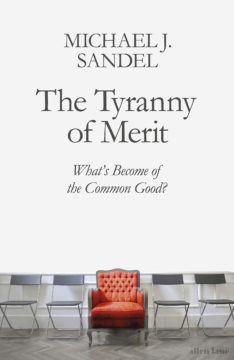Patrick J. Deneen in American Affairs:
 A distinguishing mark of classical political philosophy is its focus on the ruling claims of regimes. Classical philosophers sifted and evaluated the distinctive qualities invoked to legitimate governance by some number of people—one, few, or many. Not only the number of rulers but the stated ruling principles could vary widely across places and times, reflecting profound variety and disagreement over the nature and aims of government. Some regimes based political rule on virtue (aristocracy), others on wealth (oligarchy), others on the interests of a majority of citizens (democracy). Plato argued that philosophic wisdom should form the basis of good rule, while Confucius described the benefits of rule by those of greatest age and experience. Prophets, soldiers, and elders have all been rulers in various eras. Classical political philosophy sought to discern noble claims to rule, and how to achieve the best, or at least better, forms of governance.
A distinguishing mark of classical political philosophy is its focus on the ruling claims of regimes. Classical philosophers sifted and evaluated the distinctive qualities invoked to legitimate governance by some number of people—one, few, or many. Not only the number of rulers but the stated ruling principles could vary widely across places and times, reflecting profound variety and disagreement over the nature and aims of government. Some regimes based political rule on virtue (aristocracy), others on wealth (oligarchy), others on the interests of a majority of citizens (democracy). Plato argued that philosophic wisdom should form the basis of good rule, while Confucius described the benefits of rule by those of greatest age and experience. Prophets, soldiers, and elders have all been rulers in various eras. Classical political philosophy sought to discern noble claims to rule, and how to achieve the best, or at least better, forms of governance.
In his latest book, political theorist Michael Sandel subjects our present form of governance—“meritocracy”—to the same analysis. While our meritocracy has no exact equivalent in classical philosophy’s catalogue of regimes, Sandel finds it increasingly tyrannical. For the most part, however, Sandel’s prescriptions seem inadequate to this bracing indictment.
More here.
